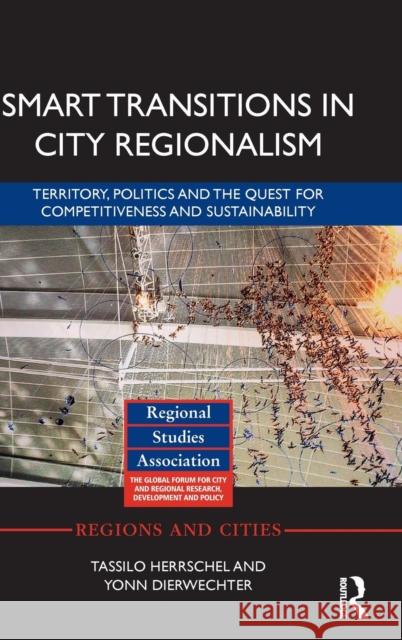Smart Transitions in City Regionalism: Territory, Politics and the Quest for Competitiveness and Sustainability » książka
Smart Transitions in City Regionalism: Territory, Politics and the Quest for Competitiveness and Sustainability
ISBN-13: 9781138903609 / Angielski / Twarda / 2018 / 244 str.
Smart Transitions in City Regionalism: Territory, Politics and the Quest for Competitiveness and Sustainability
ISBN-13: 9781138903609 / Angielski / Twarda / 2018 / 244 str.
(netto: 676,35 VAT: 5%)
Najniższa cena z 30 dni: 654,86
ok. 16-18 dni roboczych.
Darmowa dostawa!
In recent years, "smartness" has risen as a buzzword to characterise urban policy that goes beyond a one-dimensional growth agenda by addressing the multifaceted quest for sustainability, itself a much used term. Hence, it is contended that there is a new emphasis on qualitative and responsible growth. Central to this shift has been the concept of "transition" - providing the broader context and points of reference for adopting smartness in reconciling competing interests and agendas in city-regional governance.
Hence, recent discourses of smartness and smart cities now typically incorporate wider political and policy concerns with economic competitiveness, ecological sustainability, energy budgets, improved administrative efficacy, data integration and coordination, technology, citizen empowerment leading to, it is hoped, ultimately more agile, "intelligent "and efficient cultures of territorial (e)governance.
In this book, the authors scrutinise these ambitions and claims and how these smart cities and city regions interact with conventional state structures and territorialities."











